Understanding the Importance of Lease Renewals and Negotiations for Long-Term Rentals
Long-term rental properties are a critical investment for both property owners and tenants. Ensuring a smooth and mutually beneficial lease renewal process is essential for maintaining good relationships and maximizing rental income. Effective lease negotiations can minimize potential disputes, secure stability for both parties, and avoid the financial and operational costs associated with tenant turnover. This guide will explore why lease renewals and negotiations are vital for long-term rentals, providing actionable insights and best practices to help both landlords and tenants navigate this process successfully.
Why Lease Renewals Matter for Property Owners
For property owners, lease renewals are a key part of ensuring consistent income from their rental property. When a lease is nearing its expiration, it’s an opportunity to evaluate several important factors, such as the current market conditions, the tenant’s reliability, and the potential for rent adjustments. Below are several reasons why lease renewals are crucial for property owners:
Income Stability Renewing leases with good tenants ensures ongoing rental income without the interruption of vacancy periods. Vacant properties can lead to significant financial losses, especially when factoring in the costs of advertising, repairs, and tenant screening.
Tenant Retention Retaining tenants can be more cost-effective than seeking new ones. Screening and selecting reliable tenants, coupled with offering favorable lease renewal terms, helps build long-term relationships that benefit both parties. The longer a tenant stays, the lower the costs of turnover, including lost rent, cleaning, and repair expenses.
Market Conditions and Rent Adjustments Lease renewal periods provide an opportunity for property owners to adjust rent based on market trends. Regularly reviewing market conditions ensures that the rent charged is competitive while maximizing revenue. Lease renewals allow property owners to align their rates with inflation and rising property values.
Maintenance and Upkeep Lease renewals can also serve as a time to review the property’s condition. Long-term tenants often help maintain the property, and as a landlord, it’s beneficial to maintain open communication about any required repairs or improvements during the renewal process.
Why Lease Renewals Are Important for Tenants
Tenants may have several motivations for seeking a lease renewal. These factors not only benefit tenants but also provide landlords with the stability of knowing that their property will continue to be occupied. Here’s why lease renewals matter for tenants:
Continuity and Stability Tenants who are satisfied with their current living situation generally prefer the stability that comes with renewing a lease. Whether it’s the neighborhood, the proximity to work, or the amenities offered by the property, lease renewal ensures they don’t have to go through the stress and hassle of moving.
Financial Savings Moving can be expensive, with costs that can add up quickly, such as moving fees, utility setup costs, and security deposits. By renewing the lease, tenants avoid these additional expenses, making it financially more viable to stay in place.
Time and Convenience The process of finding a new rental, going through the application process, and dealing with potential delays or uncertainties can be time-consuming and stressful. Lease renewals offer a much-needed convenience for tenants who prefer not to disrupt their lives.
Building a Relationship with the Landlord A long-term relationship with a landlord can be a great benefit to tenants. This relationship can often lead to a better understanding of expectations, faster resolution of maintenance issues, and even favorable lease terms during negotiations.
Also read: How Leasing Times Affect Your Bottom Line and How Property Managers Minimize Vacancies
The Key Elements of a Lease Renewal
A lease renewal is more than just a simple agreement to continue renting the property for another term. It’s a legal contract that should address important aspects of the tenancy, such as rent adjustments, property maintenance responsibilities, and the lease’s duration. The following elements should always be carefully reviewed during the renewal process:
Rent Adjustment Terms
One of the most common negotiation points during a lease renewal is the rent. Property owners often raise the rent to reflect market rates or inflation, while tenants may attempt to negotiate a more favorable rate. Both parties should research local market conditions to ensure any adjustments are fair. Property owners should be prepared to provide justification for rent increases, while tenants should gather data on comparable rental properties to support their position.
Lease Duration
The duration of the lease renewal is another key area to address. Property owners may prefer to secure tenants for a longer term to ensure stable income, while tenants may want a shorter term to maintain flexibility. Understanding each party’s needs and negotiating a mutually beneficial term is important. For example, a three-year lease may offer stability for a property owner, while a tenant may prefer a one-year renewal to reassess the situation in the near future.
Security Deposit Considerations
Security deposits are a common point of discussion during lease renewals. Landlords may want to increase the security deposit in response to a rent increase, while tenants may feel that an increase is unjustified if there is no change in the property’s condition. Both parties should understand the legal limits for security deposit increases in their state or municipality.
Maintenance and Repairs
Clarifying maintenance and repair responsibilities is essential during the renewal process. Property owners should outline who is responsible for routine upkeep, such as lawn care and cleaning, as well as major repairs like plumbing or HVAC system maintenance. Having these responsibilities clearly defined helps prevent misunderstandings down the road.
Effective Lease Negotiation Strategies for Property Owners
When it comes to negotiating lease renewals, property owners need to approach the conversation with a clear understanding of both their financial goals and the tenant’s needs. The key to a successful negotiation is finding a balance between profitability and tenant satisfaction. Below are some strategies to consider during lease renewal negotiations:
1. Be Prepared with Market Data
Before entering negotiations, property owners should gather information on comparable rental properties in the area. This includes average rent prices, amenities, and lease terms. By presenting solid market data, landlords can justify any rent increases and demonstrate that their rates are in line with the local market.
2. Offer Incentives for Renewal
In certain cases, offering incentives can be a great way to retain tenants. Property owners may consider offering a small rent discount for a longer-term commitment, waiving a rent increase for one year, or offering upgrades to the property (e.g., new appliances or fresh paint) in exchange for the tenant agreeing to renew the lease.
3. Show Flexibility on Lease Terms
While property owners may have financial goals in mind, flexibility can help secure a deal. Offering tenants options such as a choice of lease duration (e.g., one-year or two-year) or agreeing to delay a rent increase can improve tenant retention and foster goodwill.
4. Consider the Tenant’s Perspective
Good negotiation is based on mutual understanding. By taking the tenant’s perspective into account, property owners can build trust and goodwill, which may lead to a more favorable long-term relationship. For instance, understanding a tenant’s desire for stability or their financial constraints can influence the negotiation process.

Get a Free Rental Analysis
Want to know how much your home will rent for? We’ll send you a free rental report!
Effective Strategies for Lease Renewal Negotiations
Lease renewal negotiations can be a delicate process, requiring both parties to communicate effectively to achieve a mutually beneficial outcome. While landlords may focus on maintaining income stability and covering expenses, tenants may aim to secure affordable living arrangements without the inconvenience of moving. This section will cover practical strategies and best practices for both property owners and tenants to use during lease renewal negotiations.
Lease Renewal Negotiation Strategies for Property Owners
Property owners who want to retain quality tenants while maximizing rental income need to approach lease renewal negotiations with a proactive mindset. Here are several negotiation strategies to consider:
1. Understand the Tenant’s Needs and Circumstances
Before making any demands or offers, it’s crucial for property owners to understand the tenant’s perspective. Are they happy with the property? Are they experiencing financial challenges? A simple conversation can reveal important insights into the tenant’s situation. For instance, if a tenant has had a good experience in the property but is facing financial difficulties, offering a smaller rent increase or a longer-term lease could encourage them to stay.
2. Leverage Positive Relationships
When a landlord and tenant have built a positive and respectful relationship, negotiations are often smoother. If the tenant has been reliable, punctual with rent payments, and has cared for the property, the landlord may be more inclined to offer favorable terms in the lease renewal. Such tenants may also be more willing to negotiate, knowing that their landlord values their tenancy.
3. Offer Lease Extensions for Stability
Offering a longer-term lease can be an attractive option for both the property owner and the tenant. Landlords who secure tenants for extended periods—such as two to three years—avoid the hassle of frequent tenant turnover and vacancy periods. In exchange, landlords may consider offering a slightly reduced rent increase or other incentives, such as upgrades to the property, which can be particularly appealing to tenants looking for stability.
4. Provide Rent Increase Justification
If a rent increase is necessary, providing clear and reasonable justifications for the increase can help avoid conflict. Property owners should show tenants how the new rent compares to other similar properties in the area and cite any increases in property taxes, maintenance costs, or inflation that necessitate the increase. Being transparent helps tenants understand the rationale and makes them more likely to accept the increase.
5. Offer Property Upgrades or Repairs
Another strategy for landlords is to offer property upgrades or improvements in exchange for a lease renewal. For example, replacing old appliances or updating the property’s exterior can enhance its value and appeal. Tenants may be more willing to accept a small rent increase or a lease extension if they feel they are getting something in return. Additionally, offering to address any maintenance or repair issues can also demonstrate a commitment to tenant satisfaction.
Lease Renewal Negotiation Strategies for Tenants
While landlords may have the upper hand in certain situations, tenants also have leverage when negotiating lease renewals. Here are several strategies that tenants can use to negotiate better lease terms:
1. Research Comparable Properties
Before entering negotiations, tenants should research other rental properties in the area to understand the current market rate. This includes checking listings for properties of similar size, condition, and amenities. Armed with this information, tenants can better assess whether their current rent is reasonable and present data supporting their position if they feel that a rent increase is unjustified.
2. Highlight Your Track Record as a Tenant
Tenants who have been reliable and responsible renters should highlight their track record during negotiations. If they have consistently paid rent on time, taken good care of the property, and communicated effectively with the landlord, they should bring these points to the table. A tenant who has proven to be a low-maintenance, responsible occupant is a valuable asset to a property owner, and they may be able to use this as leverage to secure favorable terms.
3. Request Lease Term Flexibility
If a tenant is unsure of their future living situation, they may prefer a lease with more flexibility. Rather than committing to another full year or more, they can negotiate a shorter lease term or ask for the option to renew after six months. This allows tenants to retain the option to move out or renegotiate if their circumstances change, without the burden of being locked into a long-term agreement.
4. Propose a Rent Freeze
In situations where the tenant feels a rent increase is unwarranted, they can propose a rent freeze for the coming year. By offering to extend the lease without a rent increase, tenants can provide landlords with the stability of retaining a good tenant while avoiding the costs of finding a new one. This can be especially beneficial in areas with stagnant or declining rental markets where finding new tenants may be difficult.
5. Negotiate Additional Perks or Benefits
Instead of focusing solely on rent, tenants may be able to negotiate additional perks or benefits as part of the lease renewal. For example, tenants may request parking spaces, access to amenities, or maintenance services at no additional cost. By framing these requests as mutually beneficial, tenants can enhance their living experience without the need for significant rent negotiations.
How to Address Potential Lease Renewal Disputes
Even with careful negotiation, disputes can arise during lease renewal discussions. These disputes can stem from disagreements over rent increases, property maintenance, or lease terms. Here’s how both landlords and tenants can address and resolve potential disputes:
1. Keep Communication Open and Respectful
One of the most common causes of disputes is a breakdown in communication. Both parties should make an effort to communicate clearly and respectfully throughout the negotiation process. When misunderstandings arise, addressing them quickly and calmly can help prevent them from escalating.
2. Know Your Rights and Responsibilities
Both tenants and landlords should be aware of their legal rights and obligations. Understanding local and state rental laws is crucial for ensuring that lease renewal terms comply with regulations, including limitations on rent increases and security deposits. When disputes arise, consulting with a legal professional or a property management expert can provide clarity and help both parties avoid illegal or unfair practices.
3. Seek Mediation if Necessary
If direct negotiations fail to resolve the issue, seeking mediation can be a beneficial option. Mediators are trained professionals who can facilitate discussions between landlords and tenants, helping both parties find a fair solution. Mediation can save time and money compared to pursuing legal action, and it often results in a mutually agreeable outcome.
4. Put All Agreements in Writing
Once the lease renewal terms are agreed upon, both parties should ensure that all aspects of the agreement are documented in writing. This includes any changes to the rent, lease duration, or maintenance responsibilities. A written agreement helps prevent misunderstandings in the future and serves as a legal record of the agreed terms.
Common Pitfalls in Lease Renewals and How to Avoid Them
While lease renewals can be straightforward, both tenants and landlords may face challenges if they are not adequately prepared. Below are some common pitfalls to watch out for and tips on how to avoid them:
1. Ignoring the Timing of the Lease Renewal
It’s essential for both parties to begin the lease renewal process well in advance of the lease expiration date. Waiting until the last minute to negotiate can lead to rushed decisions and missed opportunities for both sides. Property owners should notify tenants of their intent to renew at least 60 days before the lease ends, and tenants should start negotiating well before their current lease term expires.
2. Overlooking Market Trends
Ignoring market trends can be detrimental to both landlords and tenants. For property owners, failing to consider local market conditions may result in setting rent too low or too high. Tenants who don’t research comparable rental properties may miss the opportunity to negotiate a lower rent or a better deal. Staying informed about local rental market trends ensures that both parties are negotiating from an informed position.
3. Failing to Document Changes to the Lease
Any changes made during the renewal process, whether they involve rent increases, maintenance responsibilities, or lease duration, should be documented in the lease agreement. Failing to put changes in writing can lead to confusion and potential legal disputes later on.

Long-Term Strategies for Successful Lease Renewals
Building a strong, mutually beneficial relationship between landlords and tenants is essential for successful long-term lease renewals. By adopting long-term strategies that foster trust, open communication, and transparency, both parties can ensure continued satisfaction and avoid common challenges. This section will discuss strategies for building lasting relationships, maintaining lease renewal success, and addressing potential obstacles that may arise in the future.
Strategies for Property Owners to Maintain Positive Relationships
Landlords who consistently maintain positive relationships with their tenants are more likely to have successful lease renewals. Cultivating trust and goodwill can help avoid tenant turnover and reduce the costs and time associated with finding new tenants. Below are some strategies property owners can implement:
1. Foster Open and Transparent Communication
One of the most important factors in maintaining a strong relationship with tenants is effective communication. Property owners should establish clear lines of communication and make themselves available to address tenant concerns promptly. Regular check-ins with tenants—whether through email, phone calls, or in-person meetings—can help identify and resolve issues before they become larger problems. A proactive approach in communication also allows tenants to voice their needs and helps landlords understand how they can improve the living experience.
2. Consistently Maintain the Property
Property maintenance is a key factor that tenants consider when deciding whether to renew their lease. Landlords should ensure that the property is well-maintained throughout the duration of the lease. This includes performing regular inspections, addressing repair requests promptly, and making necessary improvements to keep the property in good condition. Tenants are more likely to stay in a property that is clean, safe, and in good working order, which can ultimately lead to longer-term lease renewals.
3. Be Fair and Transparent About Rent Increases
When it comes time to increase rent, property owners should be transparent with tenants about the reasons behind the increase. This can include rising maintenance costs, inflation, or the property’s increased value. Property owners should also ensure that any rent increase is within legal limits, and provide tenants with adequate notice—typically at least 30 days in advance, depending on local laws. Offering a fair, reasonable increase can help build trust and reduce tenant dissatisfaction, leading to higher chances of lease renewal.
4. Offer Incentives for Lease Renewals
To further encourage tenants to renew their leases, property owners can consider offering incentives such as a rent discount for early lease renewal, additional amenities, or upgrades to the property. For example, tenants may appreciate having access to extra parking spaces, on-site storage, or upgraded appliances. These incentives can help reinforce the tenant’s decision to stay long-term and provide added value to the rental experience.
5. Respect Tenant Privacy and Autonomy
Landlords should always respect their tenants’ privacy and autonomy. This includes giving proper notice before entering the rental property for inspections, repairs, or other purposes. Tenants are more likely to feel valued and comfortable in a home where their privacy is respected, which in turn can lead to a positive lease renewal experience. Additionally, maintaining transparency about the landlord’s intentions for the property—such as any plans for renovations or property sales—can prevent misunderstandings and foster trust.
Strategies for Tenants to Ensure Successful Lease Renewals
Tenants who are proactive in managing their rental relationships can also contribute to a successful lease renewal. Below are some strategies tenants can use to ensure that their lease renewal negotiations are favorable and lead to a positive long-term rental experience:
1. Be Proactive in Communicating Issues
While tenants may be hesitant to bring up issues or concerns, addressing problems early can help prevent them from escalating. Tenants should feel comfortable reaching out to their landlords to discuss maintenance requests, concerns about the property, or any changes in their living situation. By being proactive in communication, tenants can foster a collaborative relationship with their landlord, which can lead to more favorable renewal terms.
2. Document All Agreements and Requests
Tenants should ensure that any agreements or changes discussed during the lease renewal process are documented in writing. This includes any rent increases, lease term modifications, or special arrangements. Having a clear record of all agreements helps prevent misunderstandings or disputes down the line. It also provides tenants with legal protection if disagreements arise.
3. Maintain Good Tenant Practices
Being a responsible and reliable tenant can go a long way in lease renewal negotiations. Tenants should strive to pay rent on time, maintain the property in good condition, and adhere to the terms of the lease. If tenants consistently meet their obligations, they are in a stronger position to negotiate favorable lease renewal terms. In some cases, a strong track record of reliability can even prompt landlords to offer rent discounts or additional perks in exchange for renewing the lease.
4. Be Prepared to Negotiate Flexibility
In cases where tenants need more flexibility—such as a shorter lease term or the ability to terminate the lease early—being upfront about their needs can lead to more successful negotiations. Tenants should communicate any special circumstances or preferences as early as possible so that landlords have time to consider them and adjust the lease terms if necessary. Being transparent and respectful during negotiations can help tenants secure more favorable conditions.
5. Consider Offering a Lease Extension
Sometimes, tenants may prefer to avoid negotiating a rent increase or renewing the lease for another full year. In such cases, proposing a lease extension for a shorter period can provide flexibility for both parties. For example, a tenant may want a six-month lease extension rather than committing to another full year. This option allows the tenant to continue living in the property while leaving open the possibility of renegotiating terms or moving out after the extension period.
Preventing Common Lease Renewal Mistakes
To ensure a smooth and successful lease renewal process, both tenants and property owners should be aware of and avoid common mistakes that can derail negotiations. Here are some of the most frequent mistakes and how to avoid them:
1. Waiting Until the Last Minute
Waiting until the final days of the lease term to start renewal negotiations can create unnecessary pressure and limit options. Both landlords and tenants should start discussions well in advance of the lease expiration date. A good rule of thumb is to begin negotiations at least 60 days before the lease ends. This provides ample time to resolve any issues and finalize the renewal terms without stress.
2. Neglecting to Review Lease Terms
Both parties should thoroughly review the original lease agreement before beginning negotiations. This ensures that they understand the terms and obligations of the current lease and helps them identify any areas for modification. For example, a tenant may want to clarify renewal options or a rent increase clause, while a property owner may want to revisit maintenance responsibilities or security deposit terms.
3. Overlooking Market Conditions
Failing to consider current market conditions can lead to unrealistic expectations. Landlords should research local rental trends to determine if their rent is competitive or needs adjustment. Likewise, tenants should ensure that the rent they are being asked to pay is in line with comparable properties in the area. By staying informed about market conditions, both landlords and tenants can negotiate from a more informed position.
4. Ignoring the Importance of Professional Assistance
In complex lease renewal situations, both tenants and landlords may benefit from seeking professional assistance. For property owners, consulting with property managers or real estate professionals can help ensure that the renewal process runs smoothly. Similarly, tenants may want to seek advice from tenant advocacy groups or legal experts if they feel their rights are being violated. Professional guidance can provide clarity, ensure fairness, and help prevent costly mistakes.
Final Thoughts
Lease renewal negotiations are a critical aspect of managing long-term rental properties. By adopting effective communication strategies, being proactive in addressing issues, and fostering positive relationships, both landlords and tenants can ensure successful lease renewals. This collaborative approach not only benefits both parties during the renewal process but also contributes to a long-lasting and productive rental relationship.
Suggested Relevant Links:
The Financial Benefits of Proactive Lease Negotiations
Lease Renewals Made Easy: How Property Managers Increase Retention Rates
FAQ: The Importance of Lease Renewals and Negotiations for Long-Term Rentals
1. What is a lease renewal?
A lease renewal is the process by which a tenant and landlord agree to extend the terms of an existing lease for a specified period. It may involve renegotiating terms such as rent, lease duration, and other conditions.
2. How far in advance should I start lease renewal negotiations?
It’s recommended to begin discussions at least 60 days before the lease expires to ensure ample time for negotiation and avoid last-minute pressure.
3. Can a landlord increase rent during lease renewal?
Yes, landlords can increase rent during lease renewal, but the increase must comply with local laws and regulations. It is also essential for landlords to provide adequate notice, typically 30-60 days in advance.
4. What should tenants do if they don’t agree with a rent increase?
If tenants don’t agree with a rent increase, they can try to negotiate with the landlord, offer a counter-proposal, or consider looking for alternative rental options. It’s important to review the local laws regarding rent increases and tenant rights.
5. Should I negotiate a shorter lease term?
Negotiating a shorter lease term can provide flexibility if you anticipate changes in your living situation. If you’re unsure about your long-term plans, a six-month lease extension may be a good option.
6. What are common mistakes during lease renewals?
Common mistakes include waiting until the last minute to start negotiations, overlooking market conditions, and failing to review the existing lease terms. Starting negotiations early and being well-prepared can help avoid these errors.
7. Is it worth offering incentives for lease renewals?
Yes, offering incentives such as a rent discount or property upgrades can encourage tenants to renew their lease. This can lead to longer-term tenant retention and reduce turnover costs.
8. How can I build a positive relationship with my landlord/tenant?
Regular, open communication, transparency about lease terms, and respecting privacy are key factors in building a strong relationship. Tenants should also maintain the property well, while landlords should address issues promptly.
9. Should I consult a professional during lease renewal negotiations?
In complex situations, consulting a property manager, real estate professional, or legal expert can help ensure fairness and protect both parties’ interests.



